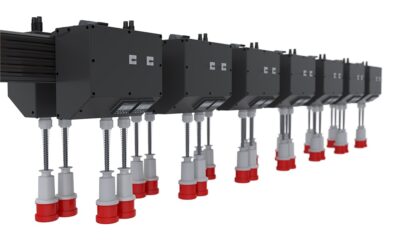News
Changing Trends in the MEA Server Market
The dynamics of the server market has been going through some major changes over the last couple of years in the Middle East and Africa (MEA). To paint a clearer picture, it is important to understand that servers are classified into different types based on their instruction sets – x86 and non-x86. The former of these are further broken down into four product categories: rack-optimized, tower, blade, and density-optimized servers. And while rack and tower servers – the traditional leaders of the pack – remain the most popular form factors, blades and density-optimized servers are both gaining ground.
Located towards the lower end of the pricing spectrum, rack servers are more likely to be adopted for projects within the government and education verticals, where price typically plays an important role in determining purchases. As such, they will continue to be the mainstays of the MEA market. Tower servers are beginning to decline in popularity, but they still hold a good share of the market, primarily due to the fact that this form factor is the cheapest.
Blades have recently become very popular in MEA, and IDC predicts that their share of the region’s market will overtake that of tower servers over the next five years. Density-optimized servers have also begun to pick up traction in the region, and IDC is expecting to see a couple of major projects in this space in Turkey and Qatar before the end of the year.
What’s interesting to note is that there has been a slowdown of server shipments to the region over the last couple of years. The major reason behind this slowdown is the growing uptake of virtualization technologies, which require less server units than was previously the case. This means that a growing number of organizations are now actively optimizing their existing installed base of servers rather than increasing their physical server capacity. And the figures back this up, with the region’s virtualization rate already standing at more than 35%.
Over on the other side of the market, non-x86 servers have been steadily declining over the last couple of years as new workloads are predominantly added on the x86 side. Typically, we are seeing a trend where organizations would rather purchase cheaper servers and virtualize them than purchase very expensive RISC, CISC, or EPIC servers.
While the MEA server market did see a slowdown in shipments during 2014, the decline of just 1% year on year compares favorably to the overall global trend, with HP and Dell respectively occupying the market’s first and second spots. This relatively strong performance was made possible by a number of significant deals that took place towards the end of the year. This includes the region’s biggest ever high-performance computing (HPC), awarded to Cray Inc. by Saudi Arabia’s King Abdullah University of Science and Technology (KAUST) to accelerate its supercomputing capabilities in both its laboratory and learning environments.
Unsurprisingly, average selling prices (ASPs) increased last year as vendors strived to hit their revenue targets at a time when volumes are falling. However, IDC is seeing a decline in ASPs this year as Lenovo and Huawei are offering prices that are 40% lower than their A-ranked rivals. To quantify this, the drop in ASP from Q4 2014 to Q1 2015 alone was 13% for all vendors combined. All that said, the MEA region continues to have a number of brand-loyal customers that prefer the more expensive options served up by HP and Dell.
While the region has seen a slowdown in server shipments over the last two years, the MEA market is expected to pick up again over the coming forecast period due to a number of reasons. Chief among these is Microsoft’s decision to end support for Windows Server 2003. Indeed, IDC expects the migration rate to pick up speed as there are still many organizations that have not yet made the switch due to the complexity of the process and the sheer number of servers that need to be rehabilitated.
The slowdown that has been seen in the purchase of servers has also driven vendors to become more innovative with their offerings, enabling them to handle different workloads and incorporate additional components like storage and networking as well. For example, Cisco’s UCS servers are sold alongside networking components. Such innovative developments will also play a considerable role in accelerating growth in the region over the coming years.
This return to growth in the MEA server market will be driven by demand for rack and blade units due to the growing requirement for Big Data computing capacity and converged systems. However, it is also worth pointing out that economic slowdowns, currency fluctuations, and government procurement issues will prevent the rate of growth from reaching its full potential in the MEA region, particularly in Africa.
The server space will doubtless continue to evolve over the next couple of years as new innovations emerge and customer demands become ever more complex. How will the major market players adapt to this change and who will emerge on top? Only time will tell, but you can be sure that it’s going to be an exciting ride finding out.
News
GFH Partners Manrre REIT (CEIC) PLC and Palmon Group unveil new temperature-controlled chemical warehouse in JAFZA
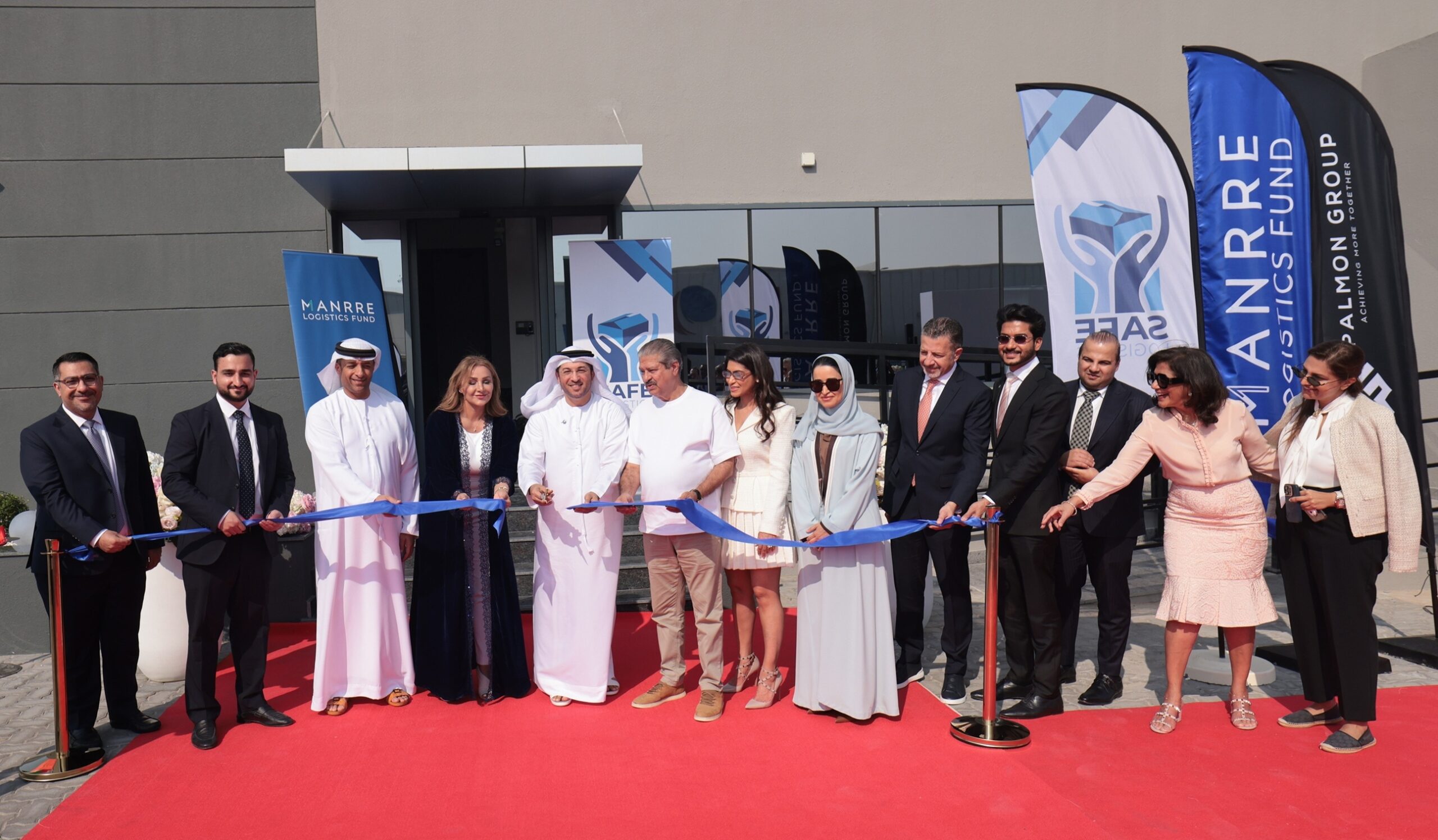
GFH Partners Manrre REIT (CEIC) PLC (“Manrre” or “the Fund”), managed by GFH Partners Ltd. (“GFH Partners”), together with its development manager Palmon Group FZCO (“Palmon Group”), today announced the opening of a specialised temperature-controlled chemical warehouse in Jebel Ali Free Zone (Jafza), further expanding the Fund’s Grade A logistics portfolio.
The inauguration ceremony was held in the presence of Mr Abdulla Bin Damithan, CEO and Managing Director, DP World GC, alongside senior officials and dignitaries from Jebel Ali Free Zone, GFH Partners, and Palmon Group.
Purpose-built and developed by Palmon Group to meet stringent international safety and compliance standards, the new facility reflects the rising regional demand for certified chemical storage infrastructure that supports manufacturing, energy, industrial services, and third-party logistics. The warehouse is situated on a 180,000sq ft plot with a built-up area of 112,000 sq ft, divided into three temperature-controlled chambers that reach a maximum height of 13 metres. The warehouse has been designed with advanced Early Suppression Fast Response (ESFR), and in-rack sprinkler systems to ensure safety and resilience across all operations.
The facility’s layout allows storage of a diverse range of hazard-classified chemicals. One chamber is configured for UN Class 3 and 4 chemicals, a second accommodates UN Class 5 chemicals, while the third has been developed for UN Class 6, 8, 9 and non-regulated materials. The warehouse offers capacity for 17,400 pallets and includes nine loading docks and three loading bays. The office space has been intentionally limited to three percent of the total built-up area, maximising operational efficiency and warehouse utility.
Speaking on the launch, Kunal Lahori, CEO of Palmon Group and Board Member of Manrre, said: “This new facility brings together precision engineering, regulatory compliance, and long-term value creation. Specialised chemical storage requires a high degree of control and risk management, and we have developed this warehouse to meet those expectations while offering flexibility and scalability for tenants. As one of the earliest developers in Jafza, Palmon Group remains committed to supporting the UAE’s logistics and industrial growth.”
Mohamed Ali, Head of GCC at GFH Partners, said: “The opening of this warehouse marks another important milestone in the expansion of the GFH Partners Manrre REIT portfolio, particularly in mission-critical industrial and logistics assets that serve high-growth sectors. The UAE continues to see strong demand for specialised storage solutions, and this facility reinforces our strategy to develop resilient, future-ready assets that deliver long-term value for our investors.”
The logistics hub is now fully operational and is leased to Safe Logistics. The new facility is expected to play a significant role in strengthening regulated supply chains and supporting Dubai’s position as one of the region’s foremost logistics and industrial hubs.
News
Big Ticket joins DP World ILT20 Season 4 as Official Partner
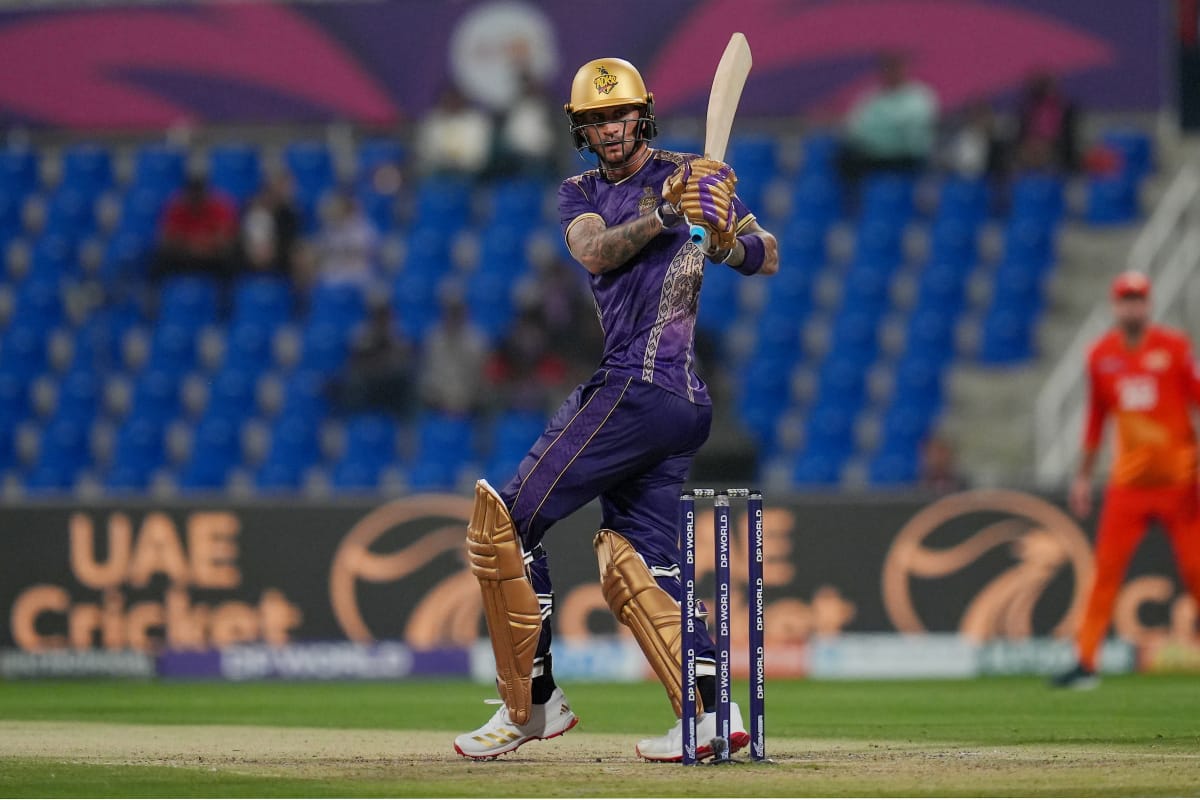
Big Ticket, the largest and longest-running guaranteed raffle draw in the Middle East (known for cash prizes, dream luxury cars, gold bars and coins) has joined the DP World International League T20 Season 4 as an Official Partner.
In recent years, Big Ticket has become more than just a raffle, it has gained the reputation of being a brand built around rewarding dreams and celebrating ambition, growing into one of the region’s largest and one of the most anticipated monthly draws in the UAE.
DP World ILT20 – the 34-match cricketing extravaganza – the biggest T20 tournament in the region featuring some of the most renowned global cricket stars is currently being played at the Dubai International Stadium, Zayed Cricket Stadium, Abu Dhabi and Sharjah Cricket Stadium.
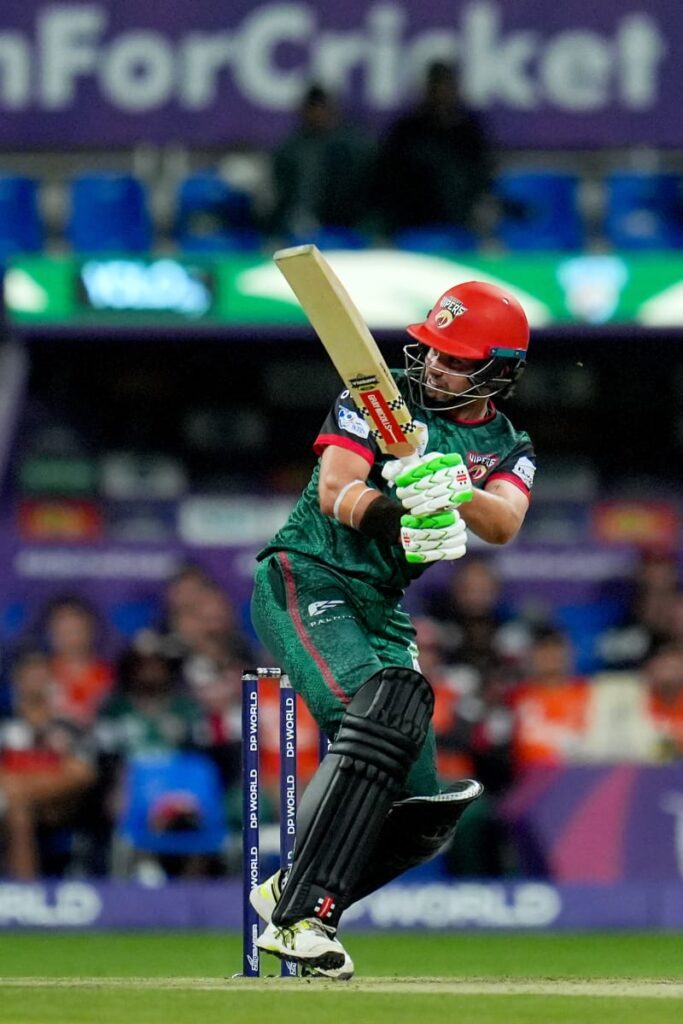
DP World ILT20 Head of Partnerships Ishan Chopra: “We are delighted to welcome a UAE born raffle giant like Big Ticket as an Official Partner of the DP World ILT20. Their legacy of helping dreams come true aligns perfectly with our vision of delivering unforgettable, fan-first experiences across the league. This partnership strengthens our commitment to creating moments of excitement both on and off the field, and we look forward to elevating Season 4 together. With a household name like Big Ticket on board, we are confident of unlocking even more opportunities for fans to engage, celebrate and go All In for Cricket.”
Meanwhile, DP World ILT20 match tickets across all categories are available for the remaining tournament matches. Various spectator stand tickets start at AED 20 and hospitality packages start from AED 325. Fans can also book the new Sixes Lounge experience for AED 395, which includes unlimited food and beverages. Tickets can be purchased by visiting tickets.ilt20.ae or Virgin Megastores.
News
The Maritime Standard Awards 2025 winners list showcases high levels of innovation and operational excellence across the maritime sector
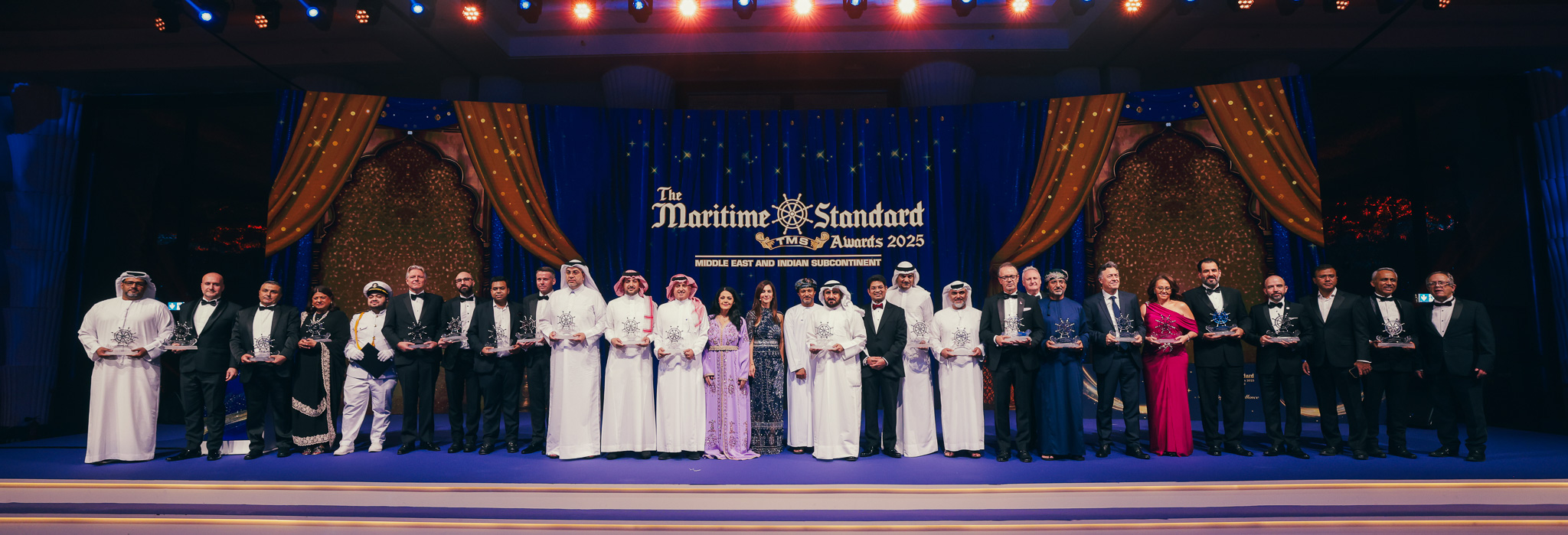
The maritime sector’s leading awards event, The Maritime Standard (TMS) Awards 2025, has announced this year’s winners, honoring outstanding companies and industry leaders from across the Middle East and Indian Subcontinent. The Awards showcased achievement and innovation in 25 categories covering shipping, logistics, ship repair, offshore services, marine technology and related sectors, as well as a series of special awards for individual achievement. The prestigious event took place at Atlantis The Palm, Dubai on October 29th, attracting over 1000 senior executives, decision-makers and industry leaders, from the region, and across the globe.
Held under the patronage of H.H. Sheikh Ahmed bin Saeed Al Maktoum, President of the Dubai Civil Aviation Authority, Chairman of Dubai Airports, and Chairman and Chief Executive of Emirates Airline and Group, the event recognised organisations and individuals for setting new standards in operational excellence and leadership in the sector amid significant shifts in the industry, including decarbonisation, digitalization, and a renewed emphasis on supply chain resilience. From clean-fuel projects and AI-powered port operations to international collaborations that boost trade efficiency, the 2025 Awards showcased the industry’s progress in turning goals into tangible outcomes.
The evening was hosted by Yalda Hakim, a renowned international correspondent and documentary filmmaker, whose engaging presence added distinction to the occasion. The keynote address was delivered by Captain Abdulkareem Al Masabi, CEO of ADNOC Logistics and Services, who shared valuable insights on the evolving maritime landscape and the UAE’s leadership in advancing sustainable and innovative practices across the sector.
Clive Woodbridge, Editor of The Maritime Standard and Chairman of the Judging Panel, stated, “This year’s competition was exceptionally tough, and we received an unprecedented number of entries across all categories. Each finalist demonstrated remarkable achievements and operational standards over the past year, which underlines the significant advances that continue to be made in the regional maritime sector.”
A rigorous assessment process was conducted as part of the award selections, and this was supervised by an independent panel of distinguished judges that included some of the most prominent names in the maritime industry.
Trevor Pereira, Managing Director of The Maritime Standard, commented, “These Awards are not just about celebrating success, but also about encouraging excellence. This year’s event recognised innovative concepts, exciting new initiatives, and outstanding performance standards. As the region continues to expand its maritime infrastructure and digital port systems, with significant developments across the Middle East and the Indian Subcontinent, events like The Maritime Standard Awards play a key role in reinforcing its position as a global leader in shipping and maritime.”
Reaction from the individual winners on the night of October 29th was highly appreciative. Captain Mohamed Al Ali, Senior Vice President, Operations (Offshore Logistics), at ADNOC L&S, who received the Outstanding Achievement Award, added: “It was one of the greatest honours of my professional career to receive this Award. It really means a lot to me to have TMS recognise the years of dedication and hard work.”
Tony Dagher, the Founder and Managing Director of TMC Shipping Group was the recipient of the Young Person in Shipping and was similarly honoured. He said: “I have been fortunate to have had great support from many people during my journey in shipping, and to have a fantastic team around me now. This Award is as much for them as it is for me.
Over the past 12 years The Maritime Standard Awards has consolidated its standing as one of the most prominent annual gatherings within the global maritime calendar, gaining worldwide recognition for recognising excellence and promoting a more resilient and sustainable maritime future.
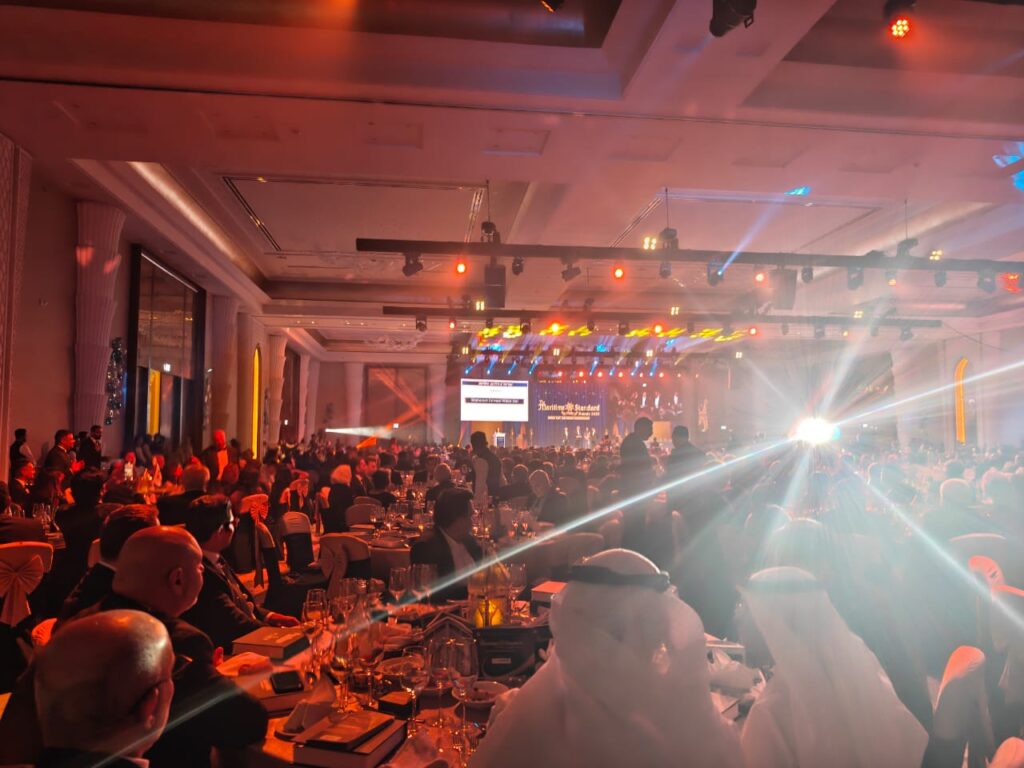
-

 Tech News2 years ago
Tech News2 years agoDenodo Bolsters Executive Team by Hiring Christophe Culine as its Chief Revenue Officer
-
News10 years ago
SENDQUICK (TALARIAX) INTRODUCES SQOOPE – THE BREAKTHROUGH IN MOBILE MESSAGING
-

 VAR11 months ago
VAR11 months agoMicrosoft Launches New Surface Copilot+ PCs for Business
-

 Tech Interviews2 years ago
Tech Interviews2 years agoNavigating the Cybersecurity Landscape in Hybrid Work Environments
-

 Tech News8 months ago
Tech News8 months agoNothing Launches flagship Nothing Phone (3) and Headphone (1) in theme with the Iconic Museum of the Future in Dubai
-

 Automotive1 year ago
Automotive1 year agoAGMC Launches the RIDDARA RD6 High Performance Fully Electric 4×4 Pickup
-

 VAR2 years ago
VAR2 years agoSamsung Galaxy Z Fold6 vs Google Pixel 9 Pro Fold: Clash Of The Folding Phenoms
-

 Tech News2 years ago
Tech News2 years agoBrighton College Abu Dhabi and Brighton College Al Ain Donate 954 IT Devices in Support of ‘Donate Your Own Device’ Campaign






